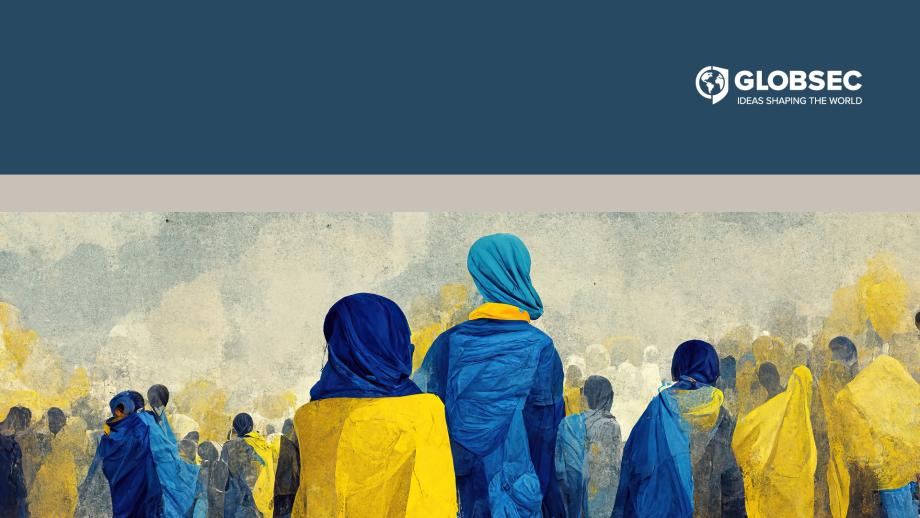Perception of Ukrainian refugees in the V4: Support with some reservations

Vladimir Putin’s unprovoked attack on Ukraine has not only caused widespread destruction but also prompted substantial refugee flows to Visegrád Group (V4) member states. As of November 2022, about 1.5 million refugees are registered in Poland, 458,000 in Czechia, 100,000 in Slovakia, and around 31,000 in Hungary. Against this backdrop, GLOBSEC commissioned a public opinion poll on the attitudes of V4 citizens toward refugees coming from Ukraine. What are the results?
• Strong general support for Ukrainian refugees. A majority of citizens in Czechia, Hungary, and Poland take a favourable view towards their countries hosting Ukrainian refugees. The picture is different in Slovakia, where a majority consider this state of affairs to be a negative development.
• Most people sense no change to their security. The vast majority of respondents feel the arrival of Ukrainian refugees has not impinged on their safety or affected the crime rate or their lives overall. People living in areas bordering Ukraine, however, tend to feel considerably more insecure.
• Welfare on people’s minds. While people in the V4 are rather open-minded about their countries hosting refugees, opinions on what sort of support they should receive are rather mixed. A majority of Slovaks and Czechs believe assistance provided to Ukrainian refugees should be slashed. The Hungarian and Polish publics, meanwhile, disagree. Slovaks also stand out as the only populace where a majority believe those fleeing Ukraine should not gain access to free healthcare. Poles and Czechs are content with refugees taking unwanted jobs compared to their more disgruntled peers in Hungary and Slovakia.
• Whom people blame for the war matters. One of the most important factors influencing people’s views on Ukrainian refugees concerns whom they blame for the conflict. Our data shows that Slovaks are the most divided on this issue and the least likely to say Russia bears responsibility – this partly explains why they harbour the most negative attitudes towards refugees fleeing their eastern neighbour.
• Following the ‘leader’. Party politics is another decisive factor affecting perceptions of Ukrainian refugees. The voters of parties that promulgate hostile rhetoric against people fleeing the war are considerably more likely to view the presence of Ukrainians unfavourably.
• The power of information. People who use social media as a source of news are more prone to holding negative opinions about Ukrainian refugees. Another group that tends to subscribe to more negative beliefs about Ukrainians fleeing the war consists of people who gather information via personal communication channels. The findings are especially alarming on the effects of this latter medium in Slovakia, where the group represents around a quarter of the population.
What should the V4 countries do to increase the positive view of Ukrainian refugees fleeing the war? Read the PDF below.

